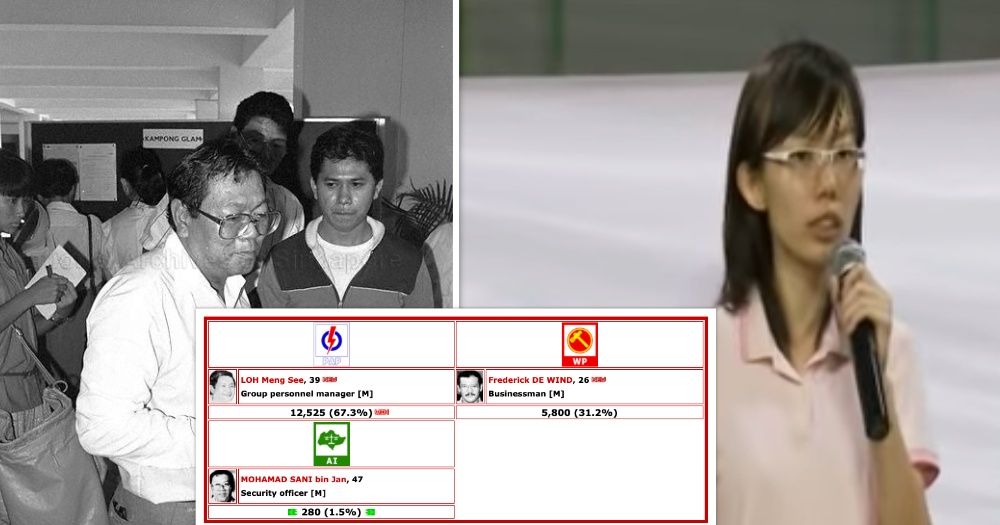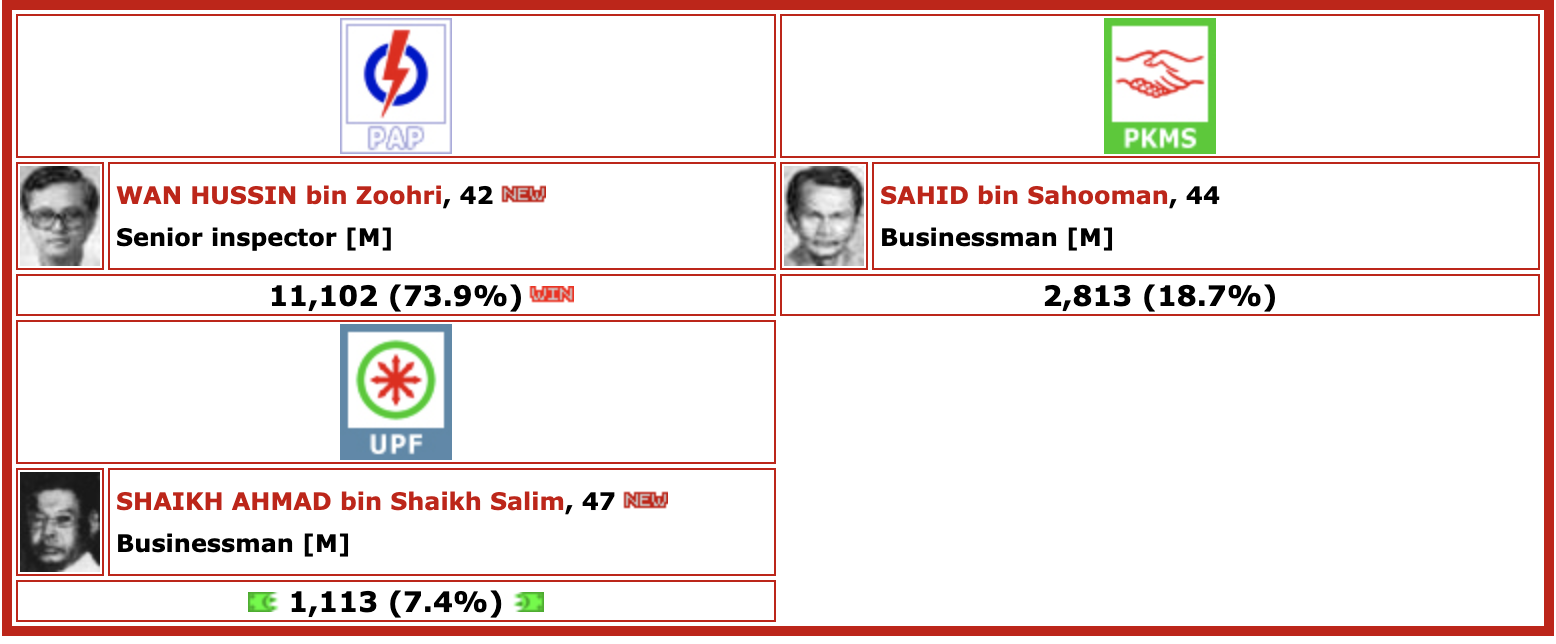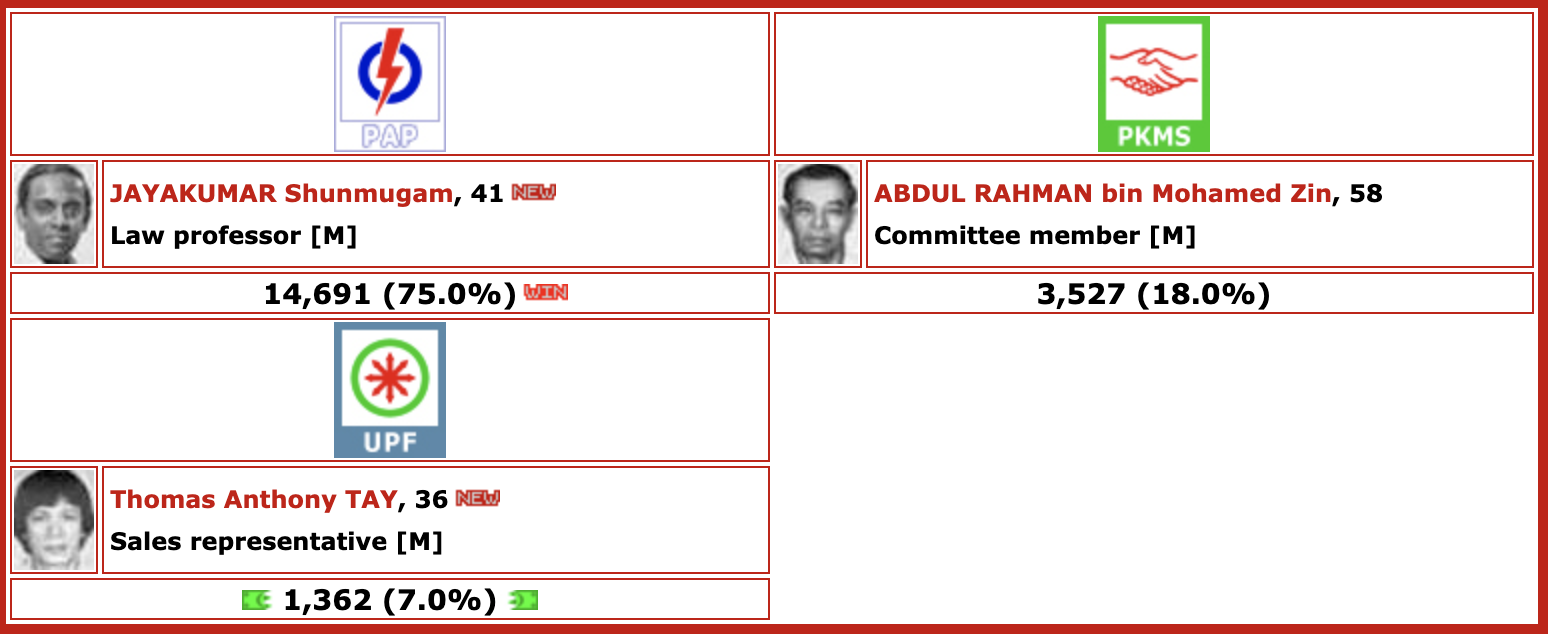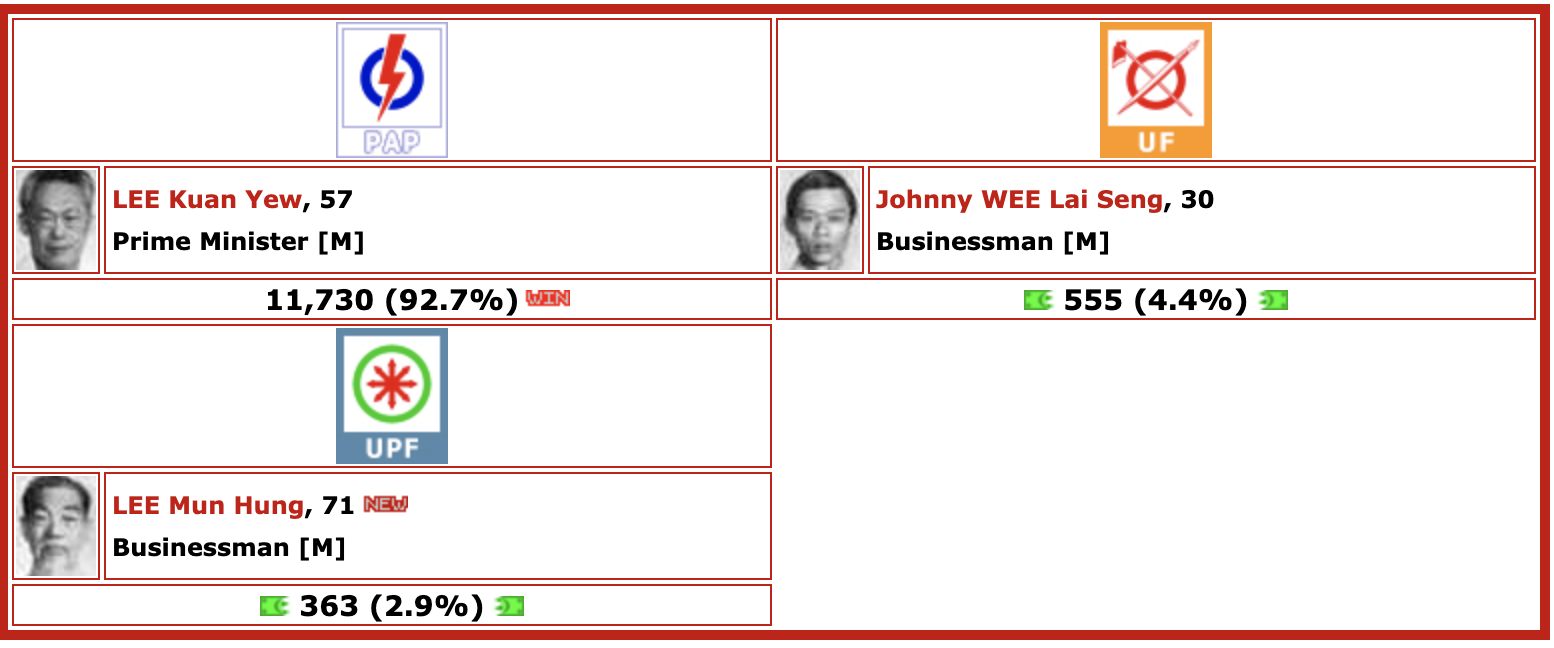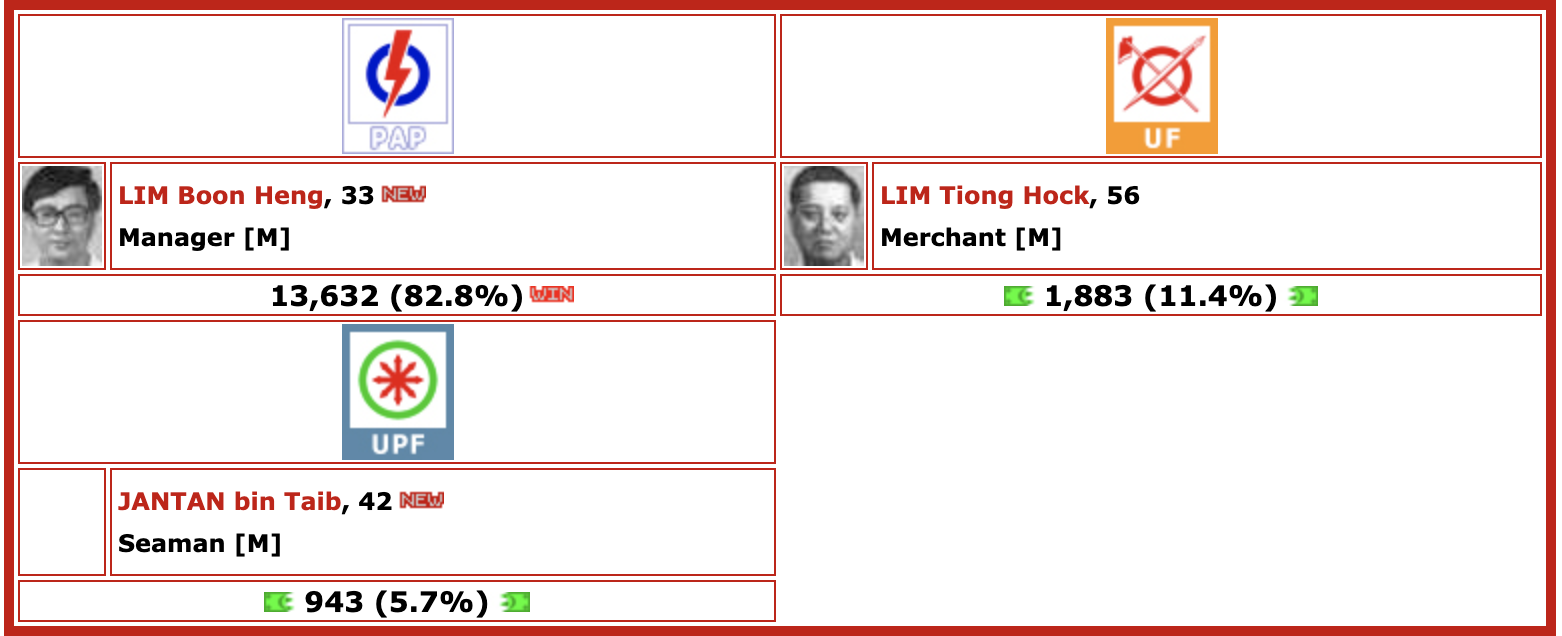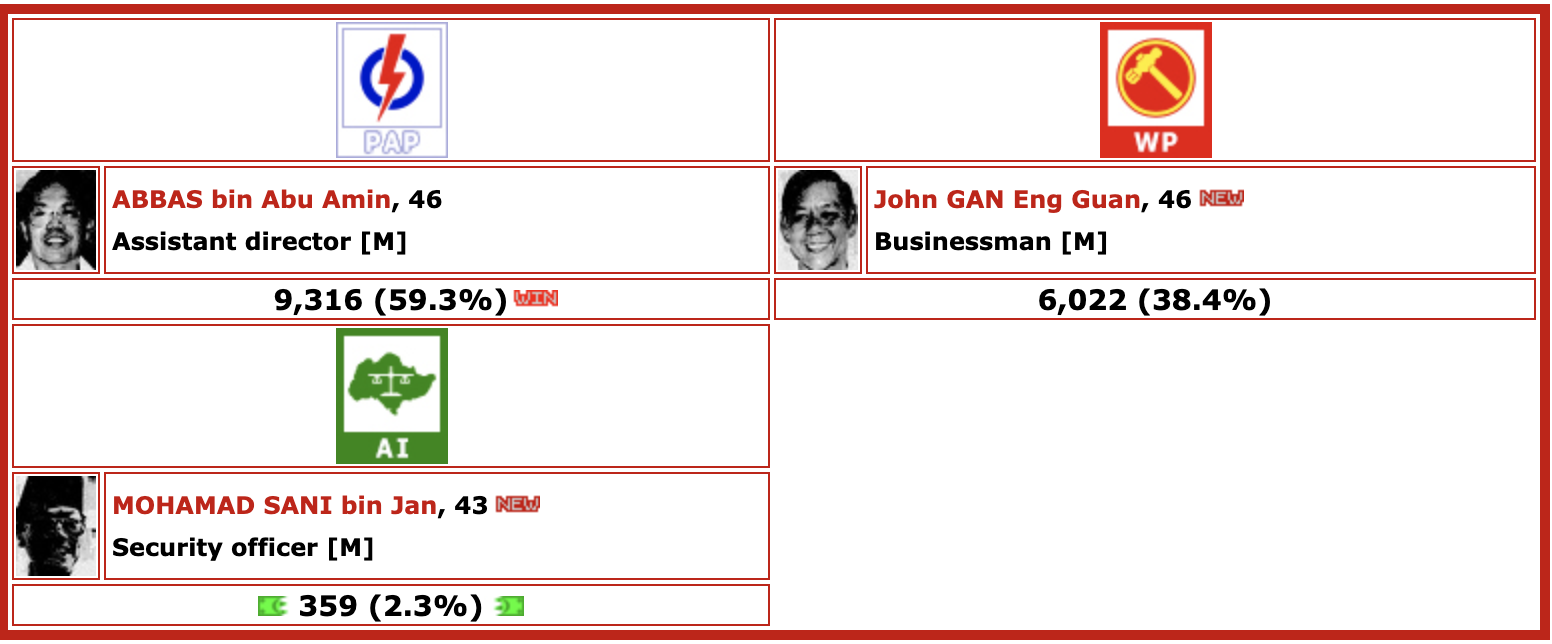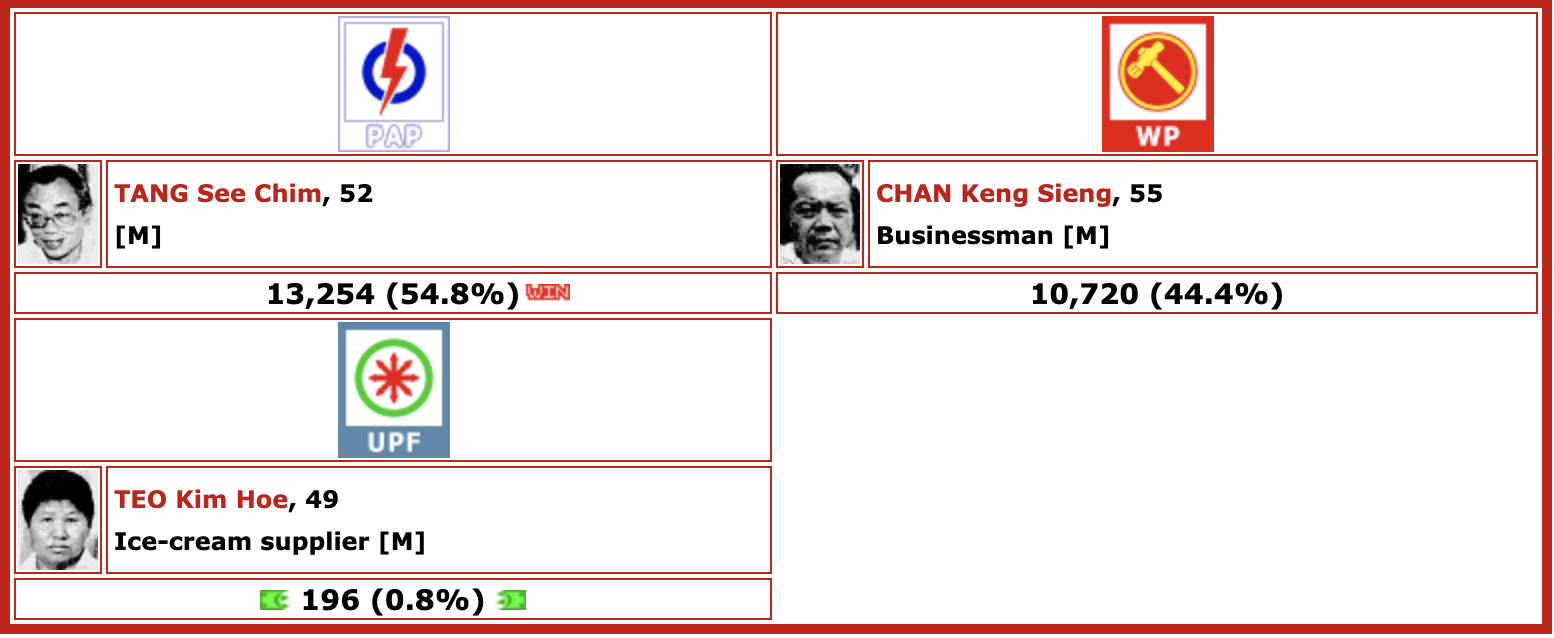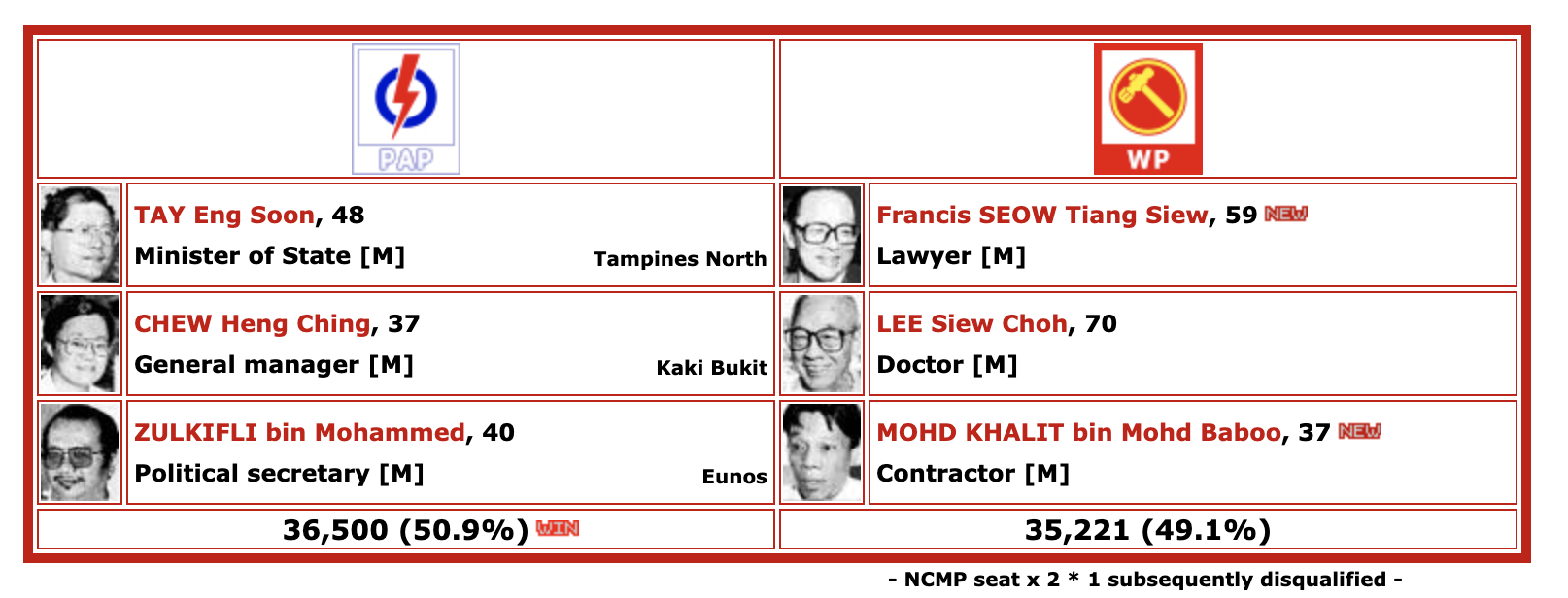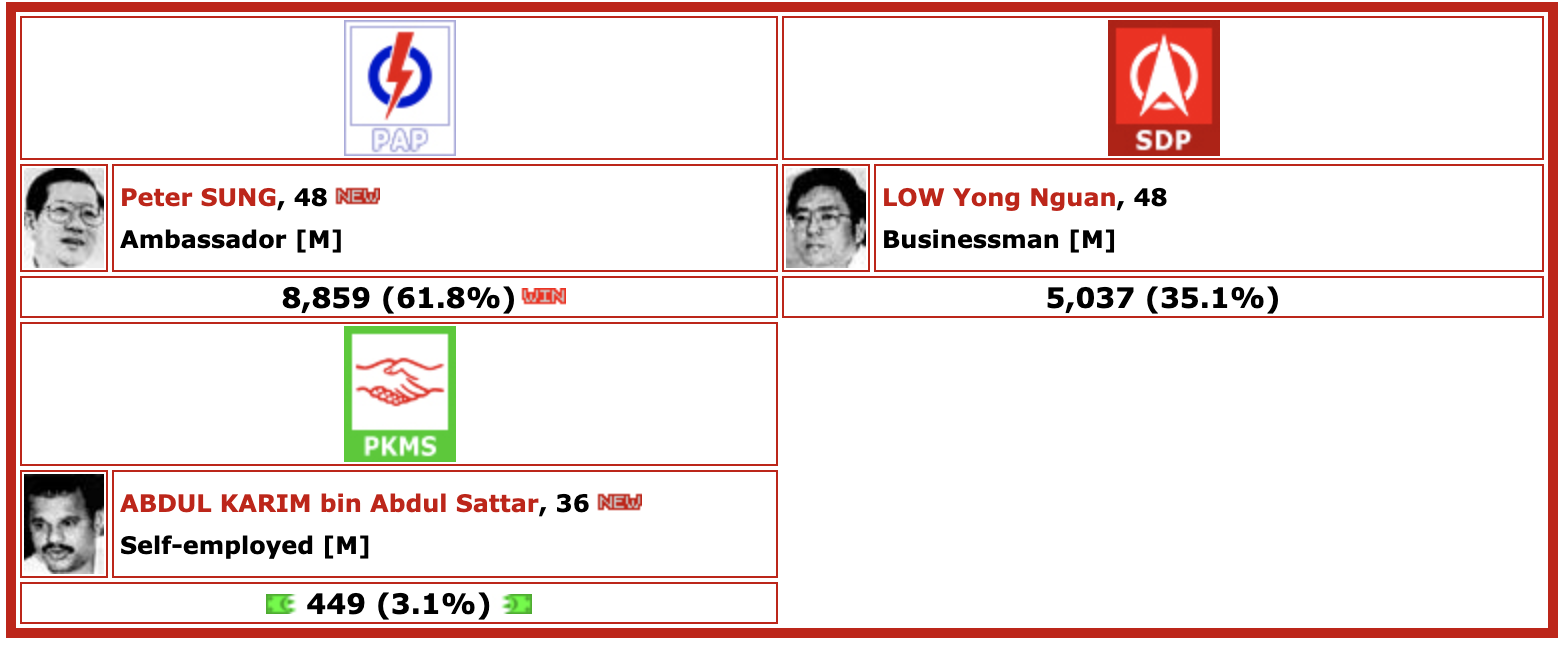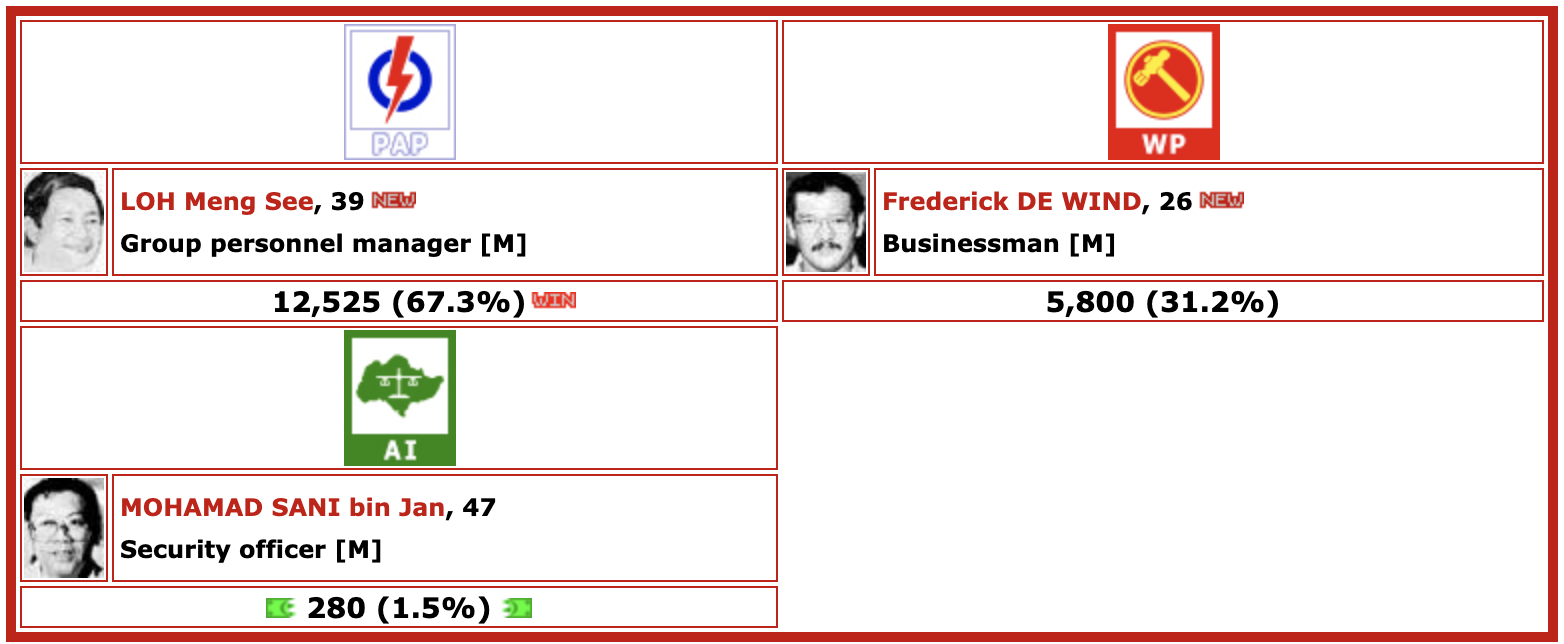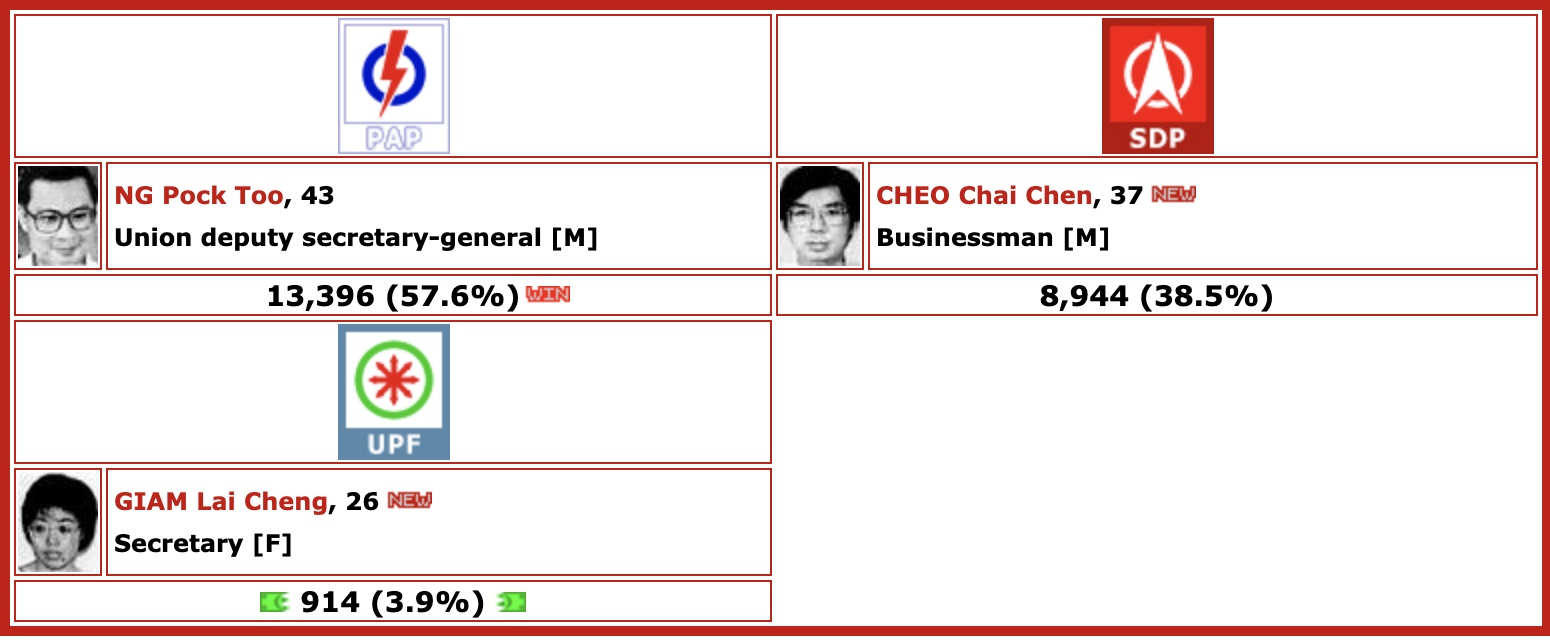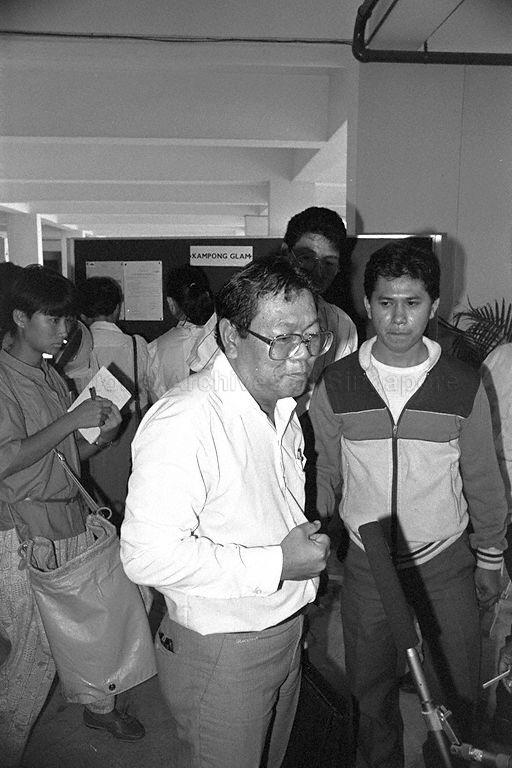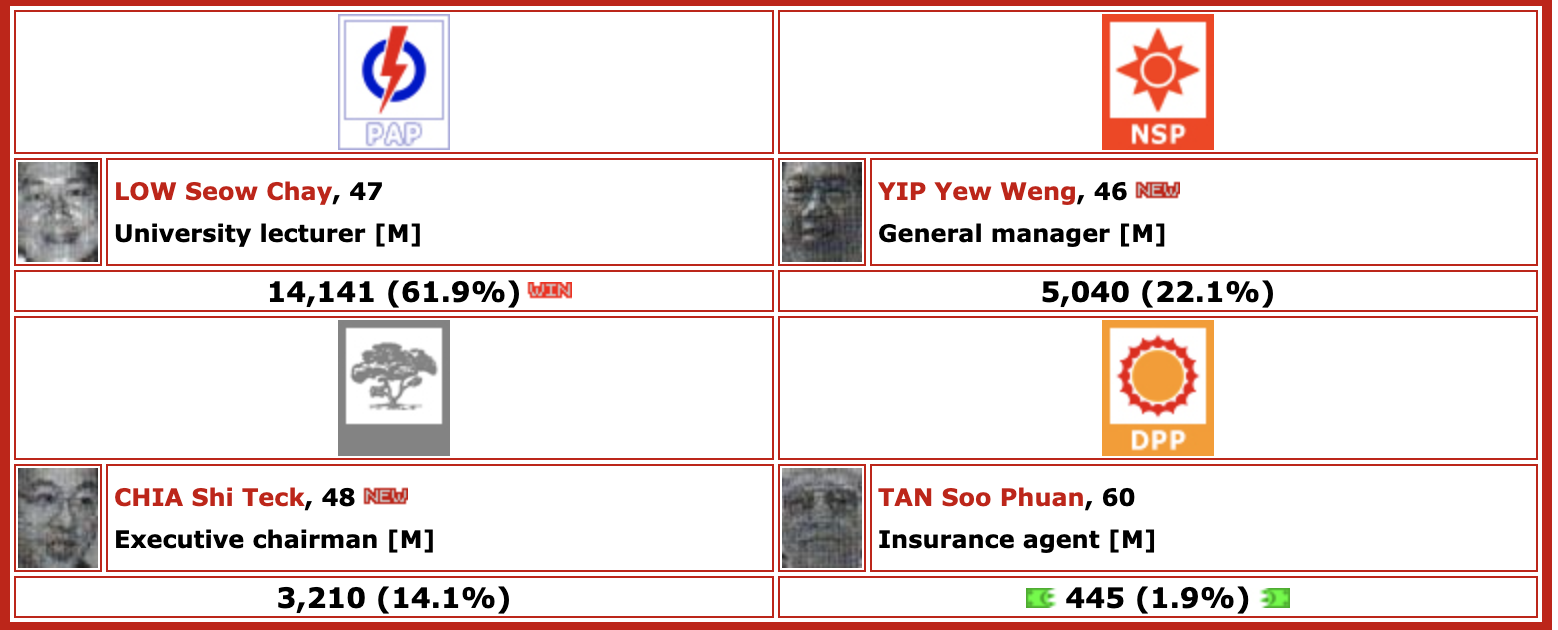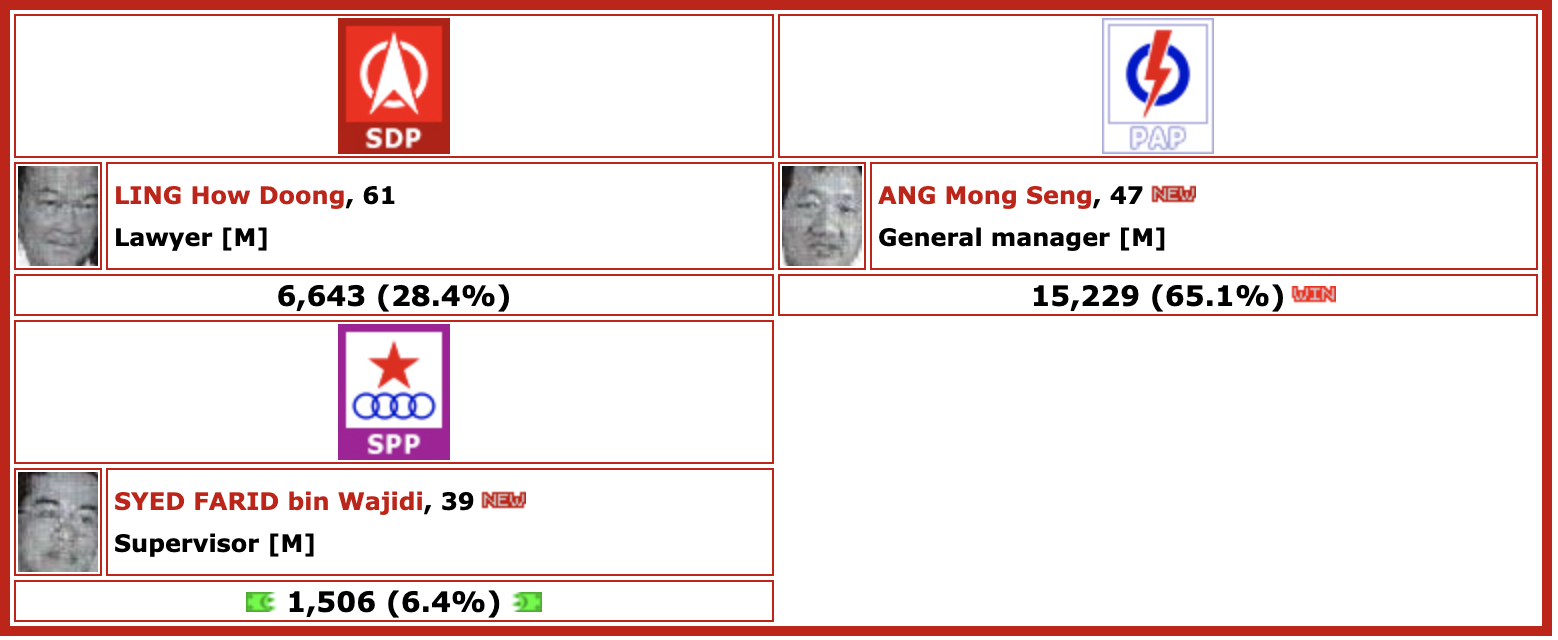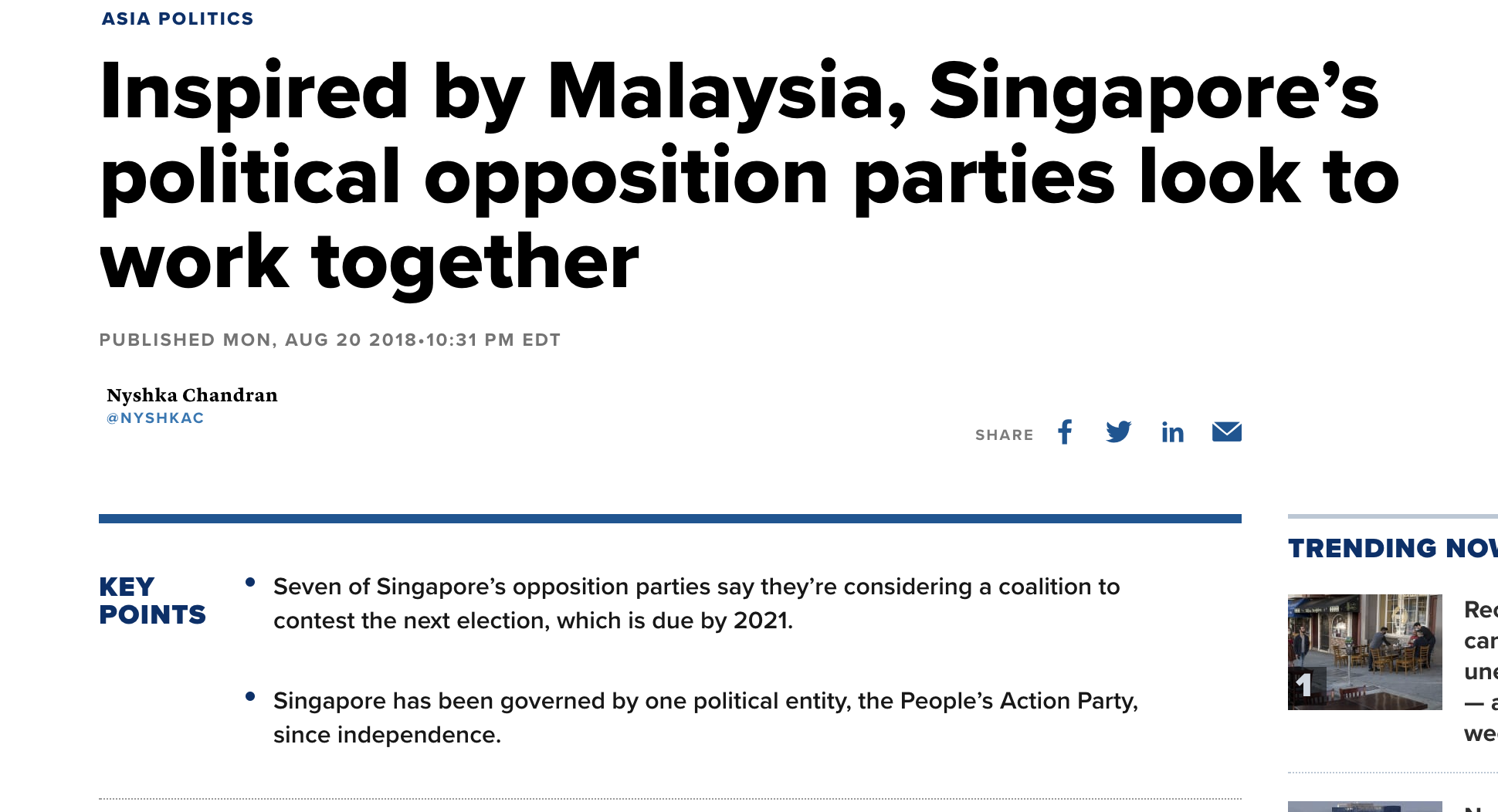Elections have been historically tough outings for non-PAP candidates.
Some might say that all losses are equal, but perhaps that doesn't really apply to elections all that much.
Do well enough, and you have a shot at clinching a Non-Constituency Member of Parliament (NCMP) spot even if you might not have triumphed in the election, but do not so good though, and there will be consequences.
13,500 of them to be exact.
To lose a lot
Election deposits are not a uniquely Singaporean mechanism at all, with many other countries adopting different iterations of the deposit.
In Singapore's case, the deposit is now fixed to an elected Member of Parliament's fixed monthly allowance. Which works out to about S$13,500.
To lose that sum of money, a candidate has to garner 12.5 per cent of the votes or less in the particular SMC or GRC they are running in.
This seems rather doable at first glance.
In fact, in an interview with The Straits Times in 2015, 45-year-old Samir Salim Neji, who was running as an independent candidate in Bukit Batok said this about the 12.5 per cent threshold:
"Even though he is a new face in Bukit Batok, Mr Samir is confident of getting enough votes so that he would not lose the $14,500 deposit.
"It's 12.5 per cent, it's an easy target," he said."
Unfortunately, Samir would go on to garner only 0.6 per cent of the vote.
How it is lost
Here are the people who have lost their election deposits in General Elections from the 1980 General Election onwards.
1980s
1980
1. Lee Mun Hung - United People's Front (UPF)- Tanjong Pagar
2. Johnny Wee Lai Seng - UF - Tanjong Pagar
3. Piaro Lachhu S. - UPF - Yio Chu Kang
4. Jantan bin Taib - UPF - Kebun Baru
5. Lim Tiong Hock - Singapore United Front - Kebun Bahru
6. Thomas Anthony Tay - UPF - Bedok
7. Shaikh Ahmad bin Shaikh Salim - UPF - Kampong Ubi
8. Atim bin Ismail - UPF - Kaki Bukit
The 1980s has the highest number of candidates who lost their election deposits among the four decades we will be examining.
The first, and most obvious reason is that there were more elections held in the decade than the other three. Another recurring reason is the number of three-cornered fights that led to these lost deposits.
Usually, one of the candidates in a three-way race would get less than 12.5 per cent of the vote.
Although there were two cases in the 1980 election which saw both opposition candidates forfeit their deposits after losing against the incumbent.
1984
1. Mohamad Sani bin Jan - AI -Pasir Panjang
2. Teo Kim Hoe - UPF - Chua Chu Kang
In 1984, there were only two candidates who forfeited their deposit, there were also only two SMCs that saw a three-cornered fight, both these contests saw candidates lose their election deposit.
None of the other contests, which all consisted of one-on-one races, saw anyone lose their deposit.
1988
The last election of the decade, 1988, saw the election deposit more than double. While it was at S$1,500 in 1984, the 1988 election saw a S$4,000 deposit being imposed.
This was also the first General Election where Group Representative Constituencies (GRCs) were in play.
None of the opposition GRC teams lost their deposit, in fact one of the closest ever contests took place in Eunos.
Absolute nail-biter.
1988 SMCs
However, it was a different story in the 1988 SMC contests. Several candidates lost their deposit.
1. Mohamad Sani bin Jan - Angkatan Islam Singapura (AI) - Kampong Glam SMC
2. Munjeet Singh - United People’s Front (UPF) - Nee Soon South SMC
3. Abdul Karim bin Abdul Sattar - PKMS - Buona Vista SMC
4. Ibrahim bin Ariff - PKMS - Bukit Panjang SMC
5. Giam Lai Cheng - UPF - Nee Soon Central SMC
There were a number of independent candidates in the 1988 elections, but they did well enough to avoid forfeiting the deposit.
And once again the trend continued, three-cornered fights were a recipe for split votes, and almost always led to one opposition candidate getting less than 12.5 per cent.
1990s
1991
1. Mohamad Sani bin Jan - Independent - Bukit Timah SMC
2. Harry William Baptist - Independent - Chua Chu Kang SMC
3. Gnaguru Thamboo Mylvaganam - Independent - Tanglin SMC
4. Mohamed bin Awang - PKMS (Pertubuhan Kebangsaan Melayu Singapura) - Jurong SMC
5. Patrick Leong Siew Choong - Independent - Bukit Merah SMC
Goh Chok Tong's first election as Prime Minister saw PAP secure victory before a single vote was cast.
It was the first time since the 1968 elections that the ruling party was immediately returned to power, due to a majority of walkovers.
The snap election was called just three years after the last one, making it the shortest time-span between general elections then.
Only five out of fifteen GRCs were contested. None of the GRC teams had to forfeit their deposit.
Seven independents contested in SMCs, of those, four lost their deposits.
But here's the interesting thing -- two independents who had ran head-to-head against a PAP candidate, while not giving a Eunos-level fight, were very much comfortably above the threshold.
 Images from Singapore-elections
Images from Singapore-elections
On a tangentially related note, 1991 would prove to be the last election for Mohamad Sani bin Jan.
He had competed in three elections since 1980, and lost his election deposit all three times.
1991 would be the first time he had ran as an independent. All three of his turnouts were in three-cornered fights.
1997
1. Syed Farid bin Wajidi - SPP - Bukit Gombak SMC
2. Tan Soo Phuan - DPP - Chua Chu Kang SMC
1997 would see the introduction of the six-person GRC.
The two contests that saw the forfeiture of deposit were once again multi-contested SMCs.
Choa Chu Kang SMC even saw a supremely rare four-way battle
And much like previous multi-cornered fights, this led to a lost deposit.
The slight quirk here though is that unlike most other elections, the candidate with a party behind him was the one who scored the worst in the hustings, less so than the independent candidate.
The independent candidate was a prominent Singaporean though. Chia Shi Teck was a former nominated member of Parliament and founder of HeShe Holdings.
The other lost deposit came in the form of yet another three-cornered fight.
2000s and 2010s
The two most recent decades have seen a significant dip in lost deposits (6), significantly less than the two decades prior (22).
2001
1. Tan Lead Shake - Democratic Progressive Party - Ayer Rajah SMC
2. Tan Kim Chuang - Independent - Bukit Timah SMC
2011
1. Desmond Lim - Singapore Democratic Alliance - Punggol East SMC
2015
1. Samir Salim Neji - Independent - Bukit Batok SMC
2. Cheo Chai Chen - National Solidarity Party - MacPherson SMC
3. Han Hui Hui - Independent - Radin Mas SMC
2001 saw walkovers aplenty, with none of the six-member GRCs being contested.
There were also no four-member GRCs, a trend that would last till 2011.
In total, there were 55 uncontested seats, which meant only about one-third of Singaporeans could actually vote this round.
But even in this barebones field, there was a three-cornered fight.
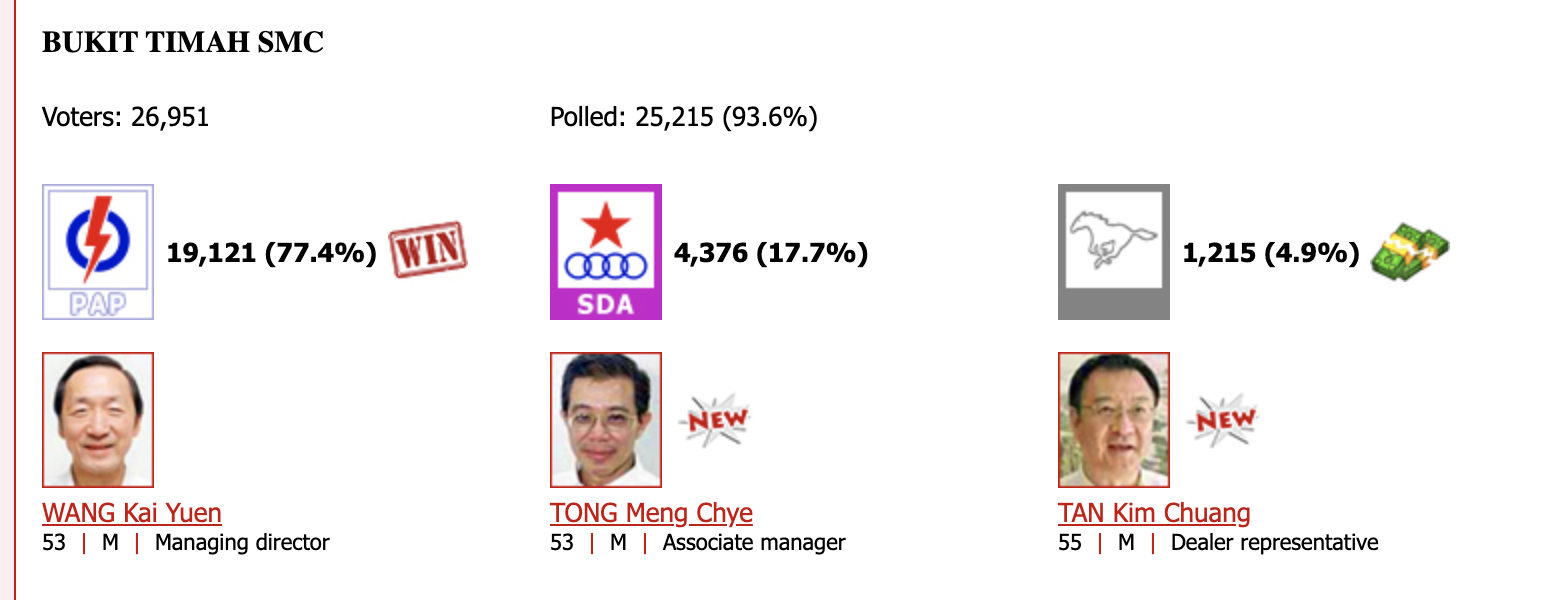 Image from Singapore-elections
Image from Singapore-elections
The other candidate who ended up getting less than 12.5 per cent was DPP's Tan Lead Shake, who lost in Ayer Rajah (12%) against Tan Cheng Bock.
There was no one who lost their deposit in 2006. 2011 saw only one candidate, Desmond Lim of the Singapore Democratic Alliance, forfeit his deposit.
And once again, the familiar three-cornered-fight shows up, with Lee Li Lian and Michael Palmer taking the majority of the votes.
All three candidates who lost their deposits from the most recent election (2015) were also involved in three-cornered fights.
Which brings us back to what Samir said right before his loss at Bukit Batok: "It's 12.5 per cent, it's an easy target,"
Independence aplenty
Han Hui Hui and Samir were the first independent candidates to run since the 2001 elections, so understandably some of the focus on why they did poorly might have been attributed to their status as independent candidates.
Associate Professor Alan Chong from the S Rajaratnam School of International Studies told Today in a 2018 article that candidates “need an organisation and you must have staying power ... You cannot run under your own banner out of nowhere.”
A point echoed by former Nominated Member of Parliament (NMP) Siew Kum Hong in the same article: “You really need a real party machinery; that’s a huge advantage."
However going strictly by "doing well enough so you can keep your money" standards, independents over the years have proven they aren't completely helpless in attracting votes, sometimes even performing better than party candidates.
Your electoral performance in the election depends very much on your ability to connect with the electorate within the very limited days of campaigning.
Killer three-cornered fights
Which is why three-cornered fights can be such a killer. Since the 2001 general election, every single candidate who has forfeited their deposit has been involved in a three-cornered fight.
Which makes sense, at the most basic mathematical level, the attention of the electorate now has to be divided by three, instead of two. Each candidate goes from getting 50 per cent of the attention (hypothetically) to just over 33 per cent.
And that is assuming the people are willing to give every candidate the same amount of attention, over a relatively short span of campaign days, which they probably won't.
Not to mention, it will almost inevitably result in split votes.
Which leads to the question, why not just avoid competing in three-cornered fights?
Perhaps a coalition?
That possibility was floated around quite a bit in 2018, mainly due to the success Malaysia's Pakatan Harapan coalition had in toppling the ruling Barisan Nasional coalition during their 2018 election.
Even CNBC came out with an article regarding this possibility.
The article highlighted the "cautious optimism" about coalition-building, despite previous failed attempts. They however noted stumbling blocks that might present itself in that attempt.
Nevertheless on January 3, 2020, the very real possibility of an opposition coalition presented itself.
Only for it to fizzle out a few months later, as The Straits Times reported that their plans had been scuppered for at least this election.
Some might question why forming a coalition would be such a tough act to pull off.
The easiest answer is that while many Singaporeans might group opposition parties under a huge opposition umbrella, they are very much independent entities with different visions for Singapore.
As Workers' Party Secretary-General Pritam Singh said in a Facebook post on November 13, 2019:
"In 2013, on the back of the Punggol-East by-election, Mr Low delivered a rally speech on why opposition unity in Singapore was difficult, if not impossible.
Indeed, many Singaporeans hope the opposition can unite and coordinate their efforts so as to become a more relevant political force.
Intuitively, the argument makes sense. But the reality is that different parties and individuals have different philosophies, both ideologically and in terms of how we engage the issues of the day."
There is however a rather wide berth between striking up a coalition or embarking on a warring states level of chaos.
Perhaps some basic understanding on not challenging the same constituencies might help. Both in securing a less divided vote share, and the election deposit.
Well indeed there have long been talks by opposition parties before elections to avoid three-cornered fights.
 Screenshot from NLB/Singapore Monitor 1984
Screenshot from NLB/Singapore Monitor 1984
Whether these promises are kept though of course is another issue.
And despite this longstanding tradition, a recent ST article said that opposition parties are not all on the same boat in terms of avoiding three-cornered fights for this coming election:
"In a break from general elections dating back decades, opposition parties look set to head into the upcoming polls without their usual pow-wow to avoid three-cornered fights.
Instead, parties are holding discussions with each other directly or in small groups - a process that has so far produced mixed results. While some agreements have been made, other discussions have hit an impasse, with parties preparing for the possibility of multi-cornered contests."
There is of course a case to be made for multi-cornered contests.
It is rather silly to think that all opinions and policy choices can be represented by two or three parties, which means either the electorate makes the compromise of choosing a candidate that doesn't totally align with what they themselves believe, or the parties make a compromise by ceding their chance to stand for elections in lieu of another candidate that might have a better shot at winning.
In fact Desmond Lim himself, who had forfeited his deposit in 2011, spoke up for why these contests are sometimes inevitable:
"Everyone has the right to stand for what they advocate," He also stated that it would give the people more choices.
However if you're for some reason looking to lose S$13,500 while campaigning, feel free to try three-cornered fights. It will be an easy target.
Top image from Singapore-Election. National Archives and CNA YouTube
If you like what you read, follow us on Facebook, Instagram, Twitter and Telegram to get the latest updates.
